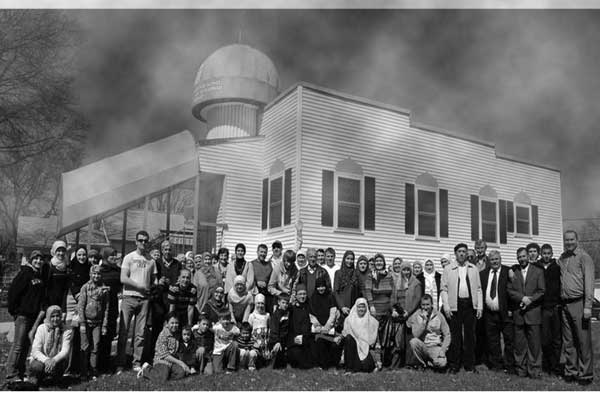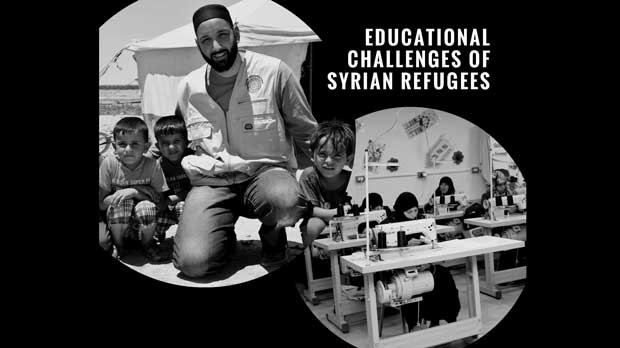Remember the individual (there’s usually at least one in every community) who used to be really active in your local Islamic center but you don’t see him or her around anymore? This individual was someone who was always there, passionate about the causes, eager to spend hours to serve the community. What happened to that individual? Why have they taken a back seat or even, in some cases, disappeared from the masjid? Thankfully there are many others who continue to be vibrant volunteers year after year, always looking for opportunities to give back, and adapting to new conditions by learning new skills. They do not vanish but, rather, remain shining examples for the new generations. They serve the cause as it should be served. We call these individuals activists, those volunteers who found it within themselves to devote their lives to Islamic and charitable work.
I was curious to know how some kept moving forward and others lost their passion along the way. I always wondered how one transforms himself from a volunteer to an activist. Then I was sitting at my local masjid, attending a seminar presented by Nasser Karimian, and right then and there, I felt the mystery was solved for me. As is so often the case, the answer came from the Quran, from the oft-recited verses of Surat Al-Asr. This short chapter, a brief three verses, starts by declaring that all of us, all human beings, are losers: “By time as it passes, verily man is in loss…” (Quran 103:1). But wait, we want to be successful – we do not want to be losers! Alhamdulillah, Allah SWT in the next two verses informs us that there are exceptions, that we can avoid the loser tag. Yes, all people are in a state of loss “…except those who believe and do righteous deeds and enjoin one another to truth, and enjoin one another to patience and constancy” (Quran 103:1-3).
These verses outline the four essential ingredients for success in the Hereafter:
1. Believe
2. Live by it
3. Inspire others
4. Never lose hope
See, it all makes sense. Maybe it is us or someone we know who lacks one of the above four qualities and, therefore, is not reaching his or her full potential. Just as those successful people who keep plugging away longer than others, in all seasons, we too have to believe in a “dream,” and then do whatever it takes to make it a “reality.” We cannot do this alone, we need to build effective alliances. During this entire process, we will face setbacks and obstacles, potentially preventing us from converting our dream into a reality, but we must keep moving forward and not give up. May Allah (SWT) make us of those people who are actively working for His cause with sincerity and dedication, ameen.
Belief is not enough
As Muslims, we all believe in the divine knowledge sent to us through our beloved Prophet Muhammad (peace be upon him). We believe in the Hereafter, and we also believe that we have to earn our place in Paradise. In fact, belief is futile if it does not result in righteous action, just as action without knowledge is so often misguided and ultimately useless. Imam Ash-Shafiee (may Allah be pleased with him) is reported to have said, “Knowledge is that which benefits, not that which is memorized.” If knowledge is the tree, then actions are the fruits.
In every prayer we recite Surat Al-Fatihah, the opening chapter of Quran, which in the sixth verse provides a supplication to Allah (SWT), asking Him to guide us to the right path. So the very reason the knowledge was bestowed on us is so we act upon it once we believe in it. In fact, in other verses Allah SWT mentions the right path, and calls it a steep path, one which we have to be willing to ascend. It is a path that requires action. It is “freeing the bondman; or the giving of food in a day of privation to the orphan with claims of relationship, or to the indigent lying in the dust. Then will he be of those who believe and enjoin patience and perseverance, and enjoin deeds of kindness and compassion” (Quran 90:13-17). Clearly, the people who don’t act upon their belief and knowledge have gone astray and, therefore, are losers.
I am a good person, individually – isn’t that enough?
Many people fall into this trap of Shaytan. They feel that they are doing good deeds on the individual level, and they no longer want to deal with the complications and interpersonal struggles of working with others collectively. Every volunteer engaged in the collective effort goes through this internal debate. In such vulnerable moments, we should remember what Malik ibn Dinar is reported to have said (he was one of the tabieen, successors after the companions of the Prophet): “Allah (SWT) revealed to an angel to destroy one of the villages. So the angel wondered, ‘O my God, there is this slave of yours who has not disobeyed you for a single moment and he lives there.’ Allah (SWT) said to the angel, ‘Start with him, for he has never acted upon seeing other people violating my prohibitions.'”
As Muslims, we are required to engage actively and positively in our local communities. It has been said, “No man is an island, entire of itself; every man is a piece of the continent, a part of the main.” This is so true. History proves that individuals cannot fight corruption and bring about positive change without organizing and acting in concert with other like-minded individuals.
Inspire others to join you
Those who have made a positive difference throughout history have envisioned change for the better and they inspire others to collaborate in realizing that vision. Everyone wants to believe in something of significance and wants to make a contribution. We must realize this basic human need and effectively link this individual desire to the imperative of taking action and serving a noble and divinely-mandated purpose. As activists for Islamic causes, we must not only provide leadership that inspires, but also empower our fellow volunteers to strive to fulfill their best potential. So our goal should be to inspire and collaborate with others, not just as empty slogans, but rather with a clear and compelling vision to move us from indifference, mediocrity, or pessimism to the highest excellence, a mastery of self and a devoted service to others, by the Mercy of Allah (SWT).
Persevere and enjoin others to do the same
The person who doesn’t stick it out when things get difficult is a quitter. Isn’t an individual who quits the race midway a loser? Remember, our goal on the day of Judgement is to not be a loser but a clear winner, insha’Allah. Allah (SWT) reminds us in Quran repeatedly that we will be tested in this life. There will be many obstacles and hardships that challenge our faith and impede our efforts. We therefore must develop sabr – patience and perseverance. The Quran instructs us, “So [O Believers] endure hardship with beautiful sabr” (al-Ma’arij 70: 5). Not only should we persevere, we should do it with resilience and optimism. We must see an opportunity in every difficulty, an opportunity to turn to Allah (SWT) in remembrance and prayer. We can remind ourselves whenever necessary that Allah (SWT) will grant ease after hardship (at-Talaq 65: 7), and that on no soul does He place a burden greater than it can bear (al-Araf 7: 42). Remember that He has all the power. He gives everything. No harm can come to any one of us except by His will, and no benefit can come to us except through His beneficence. Everything that is happening in life is because of Him and comes from Him, for there is no power other than Allah, the Most High, the Great. Those of us who remain steadfast during times of challenge and adversity will be the ones rewarded for reaching the finish line, by the Mercy of Allah (SWT).
We are a dawah nation
As we gain clarity about these essential ingredients for success, it is imperative that we refresh our grasp of the job description assigned to us by our Creator. We must remind ourselves as to why we volunteer in the first place. Allah (SWT) states, “You are the best nation produced [as an example] for mankind. You enjoin what is right and forbid what is wrong and believe in Allah” (Al-Imran, 3:110). Our task is to be “the best,” and we are raised up to provide light for all humanity. Notice how the verse says that we are raised up “for” not “from” humanity. The use of “for” means that we should be in service of humanity. Not a single day should pass by without us providing this service – the service to help our fellow humans find guidance to the straight path. The ultimate objective is to be “witness unto mankind.” Our struggle in this prophetic mission of volunteerism is to be witness to the Truth by facilitating what is righteous, and eradicating what is wrong. That is the purpose and obligation of Islamic activism. May Allah (SWT) help us to fulfill this duty. Ameen.
Consequences of Failure
The Prophet (pbuh) has provided us with a metaphor about the collective and interdependent well-being of humanity, and that those with resources, whether natural resources or spiritual knowledge, must be willing to guide and assist those who are seeking access. He (pbuh) mentions a boat having two decks. Whenever the people in the lower deck needed water, they had to go to the upper deck to get access to the water. Eventually they said to themselves, “Let us make a hole in our part of the ship and get water without bothering the people above.” The water in this example represents knowledge. The people on the upper deck are the “practicing” Muslims, those who, according to the hadith, abide by Allah’s orders and limits. The people from the lower deck are seeking knowledge from the people above. So if we, as Islamic activists, get annoyed when those without knowledge choose a misguided solution or path of action, we should remember that it is our responsibility to share the knowledge, understanding, and experience we have been blessed with. Otherwise, the people will go astray and resort to ignorant solutions such as making a hole in the ship. Ignorance on the one hand, conjoined with dereliction of duty on the other, can take us all down with the ship!
The bottom line
Our life journeys will have both successes and failures. But neither success nor failure will be by accident. They are direct result of our actions or inactions. We are not answerable for our circumstances, but we are responsible for the actions in response to those circumstances. We must learn from our past mistakes, and at the same time, not live in the past by relishing “old” successes. As we graduate from occasional volunteer to lifetime activist, we must transition from “Why me?” to “Ask me!” whenever opportunities to contribute arise. That lays the foundation for a win-win situation!





